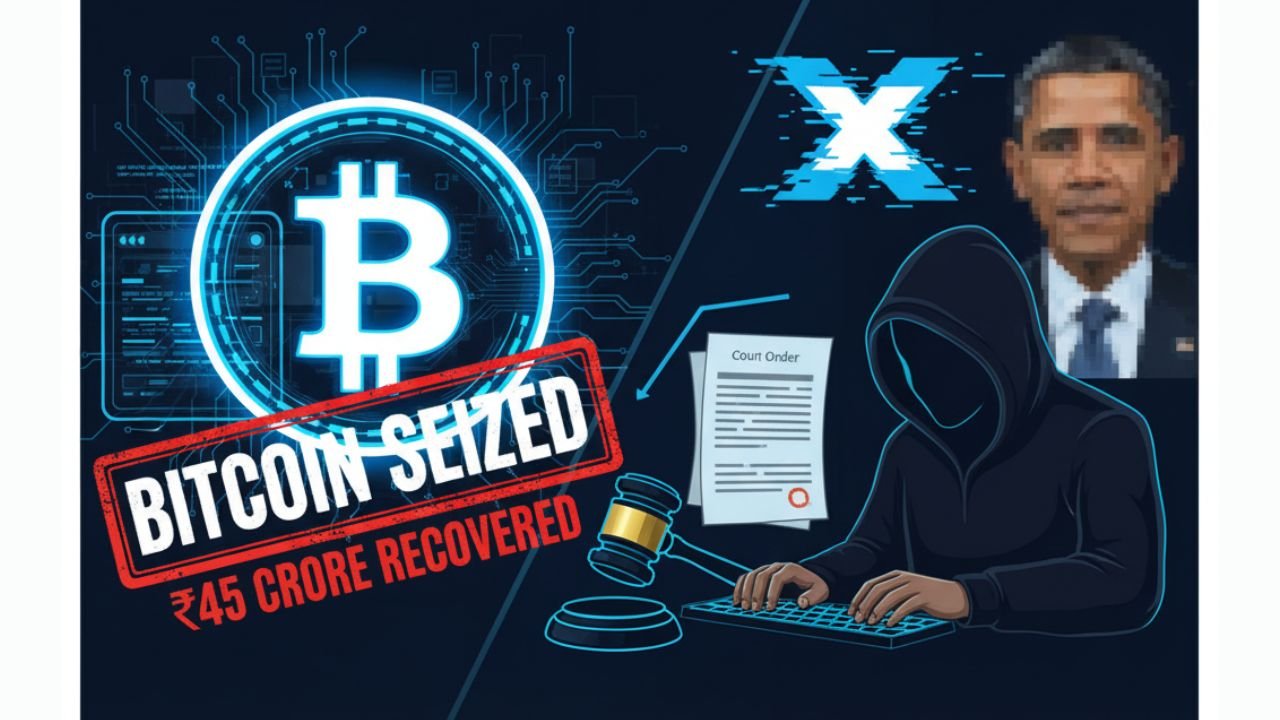New Delhi: The British national responsible for hacking the Twitter account of former U.S. President Barack Obama—now known as X—has been ordered by a UK court to return $5.4 million (approximately ₹45 crore) in Bitcoin and other cryptocurrency holdings.
This directive is linked to the high-profile 2020 Twitter hack, in which several prominent accounts, including those of Joe Biden, Elon Musk, Bill Gates, Warren Buffett, and Kim Kardashian, were compromised. The cyberattack aimed to solicit cryptocurrency donations and intimidate high-profile users for financial gain.
Algoritha: The Most Trusted Name in BFSI Investigations and DFIR Services
Hacker’s background and criminal conviction
The hacker, 26-year-old Joseph James O’Connor, was convicted in the United States on charges of computer hacking, wire fraud, and extortion. In 2023, he was sentenced to five years in prison.
In addition to his imprisonment, the UK court has now issued orders to seize 42 Bitcoins and other crypto assets held by O’Connor. The seizure falls under a civil recovery order, a legal mechanism allowing authorities to recover proceeds of crime through civil proceedings, ensuring that criminals cannot retain the financial benefits of their actions.
Prosecutor Adrian Foster emphasized the importance of this action, stating, “We have exercised all our legal rights to ensure that, even if someone has not received additional punishment in the UK, they cannot profit from their crimes.”
Details of the 2020 Twitter hack
Joseph James O’Connor was apprehended in Spain in 2021 and subsequently extradited to the United States. The cyberattack occurred in July 2020, immediately prompting Twitter to temporarily block all verified accounts.
During the hack, several high-profile accounts were compromised to solicit cryptocurrency donations under false pretenses and to intimidate celebrities. The incident highlighted vulnerabilities in high-profile social media accounts and the challenges of policing cryptocurrency-related crimes.
Cryptocurrency and cybercrime risks
The case has reignited concerns about the misuse of cryptocurrencies for cybercrime. Experts note that crypto’s decentralized and largely unregulated nature can attract cybercriminals seeking anonymity and financial gain.
International cooperation and stringent legal enforcement are critical to prevent hackers from exploiting digital currencies. This includes tracking illicit crypto transactions, strengthening cybersecurity protocols, and imposing cross-border legal accountability for cyber offenders.
Civil recovery as a deterrent
The court’s civil recovery order against O’Connor marks a significant precedent in recovering digital assets linked to cybercrime. By confiscating cryptocurrencies obtained through illicit activities, authorities send a clear message: digital crimes will not yield lasting financial benefits.
Cybersecurity analysts also emphasize that such cases underscore the importance of robust encryption practices, careful management of private digital keys, and vigilance against phishing or social engineering attacks targeting high-profile accounts.
Global lessons and future safeguards
The O’Connor case demonstrates that no cybercriminal, regardless of nationality or platform, is immune to legal accountability. It also stresses the need for high-profile social media users to implement enhanced security measures, such as multi-factor authentication and regular monitoring of account activity.
Furthermore, the case highlights the growing intersection of cryptocurrencies and cybercrime, emphasizing the importance of international collaboration to trace and recover digital assets. Experts advocate for stricter cyber laws, proactive monitoring of suspicious transactions, and public awareness campaigns to reduce vulnerability to cyber threats.
Conclusion
This incident is a stark reminder that cybercrime has serious legal and financial consequences. The combination of criminal prosecution, civil recovery, and international cooperation ensures that criminals cannot profit from hacking attempts, sending a clear warning to would-be cyber offenders worldwide.
By prioritizing legal enforcement, digital accountability, and cyber hygiene, authorities aim to create a safer online environment for individuals, celebrities, and organizations alike, demonstrating that no digital platform is beyond the reach of the law.



